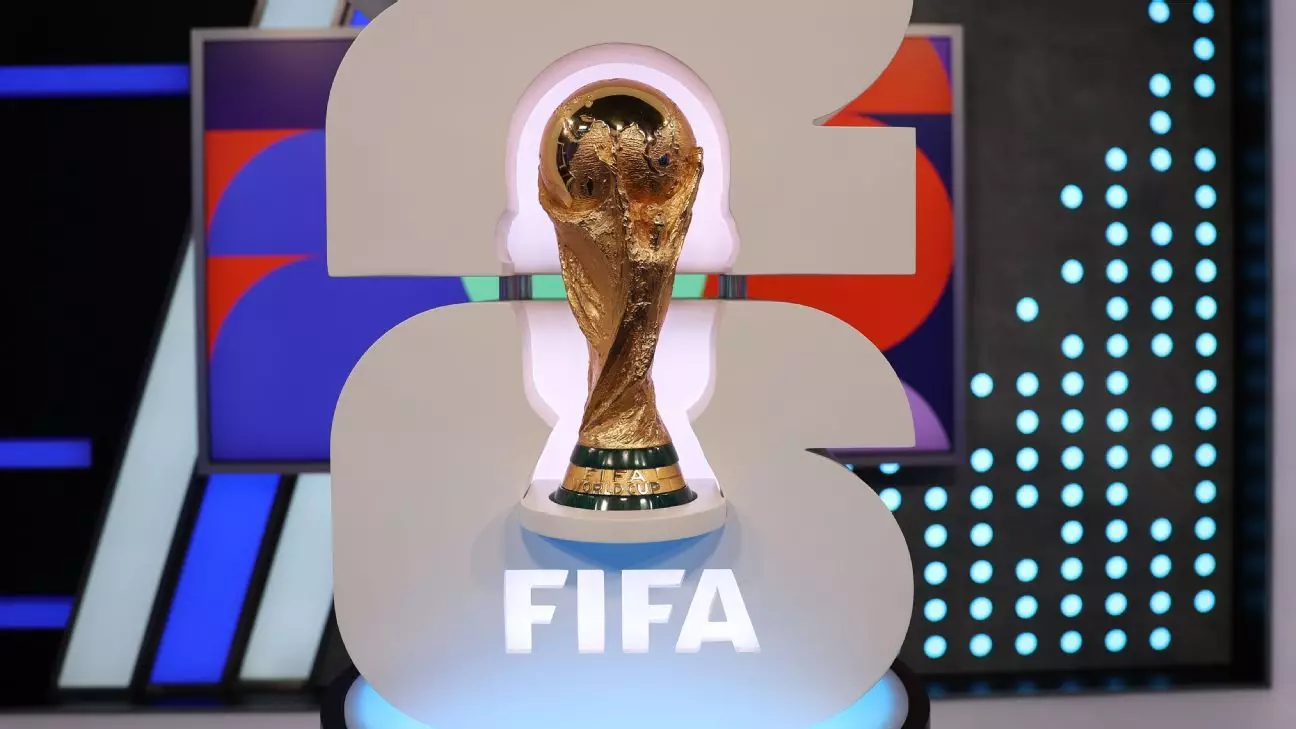In an unexpected yet crucial move, the Norwegian Football Federation (NFF) made headlines by declaring its intention to vote against FIFA’s approach to awarding hosting rights for the upcoming 2030 and 2034 World Cups. The federation’s firm stance has sparked discussions among footballing officials, fans, and analysts alike about the transparency and integrity of FIFA’s selection process. Scheduled for a virtual Congress, this decision by the NFF reflects growing discontent over perceived procedural flaws and raises salient questions about governance within one of the world’s largest sporting organizations.
The NFF’s criticism is grounded in a comprehensive letter directed at FIFA, which expresses numerous concerns regarding the selection process for the World Cup hosts. The federation underscored that despite each World Cup having only one bid—Morocco, Spain, and Portugal for 2030, and Saudi Arabia for 2034—the lack of competitive bidding raises red flags. Critics assert that a process devoid of alternatives not only stifles healthy competition but also undermines the spirit of the prestigious tournament.
With the exclusive bids for both World Cups already established, the NFF has argued that the upcoming vote is not about choosing the hosts but rather an opportunity to critique and reevaluate FIFA’s decision-making framework. President Lise Klaveness articulated these sentiments, pointing out that the voting process should reflect the fundamental principles of good governance—qualities that the NFF believes are lacking in FIFA’s current approach. By taking a stand against the acclamation vote, the NFF aims to voice its dissent to FIFA, thereby seeking to restore trust and credibility within the global football arena.
FIFA’s announcement of the bidders in October 2022 added another layer of complexity to this situation. The joint bid from Argentina, Chile, Uruguay, and Paraguay, designed to commemorate the centenary of the World Cup in 2030, was overlooked in favor of the Morocco-Spain-Portugal bid. This raises critical concerns about the decision-making criteria employed by FIFA, especially when historical significance appears to have been sidelined for what is perceived as an easier option.
A pivotal facet of the NFF’s argument rests on FIFA’s apparent neglect of its own human rights guidelines and due diligence. Each World Cup carries the responsibility not just of sport but of ethical governance, and the repercussions of overlooking human rights can be monumental. With FIFA asserting that it is the “global custodian of football,” the federation’s failure to integrate checks on potential human rights violations has given rise to alarm among various stakeholders.
Klaveness pointed to the risks involved, stressing that a departure from transparent and accountable processes risks undermining FIFA’s credibility. As nations globally look up to FIFA for leadership, a perceived inconsistency in governance could deter trust from both states and fans, inevitably affecting the broader footballing community.
The NFF’s actions are reflective of a larger urge for reform among international footballing bodies. By advocating for a more open and accountable bidding process, the federation is not merely opposing a decision; it’s asserting the need for systemic change within FIFA. Such reforms are essential not only for integrity’s sake but also to ensure that all nations feel encouraged and valued in their pursuit to host international events.
The NFF’s refusal to endorse the FIFA process for the 2030 and 2034 World Cups sends a potent message about accountability and transparency in sport. As football evolves, it is imperative for representatives from all corners of the globe to engage critically with governance structures to foster a fairer, more trustworthy environment for the beautiful game. The evolution of FIFA, to truly embody its claims of stewardship, may hinge on the voices of dissent like that of the NFF pushing for reform from within.

